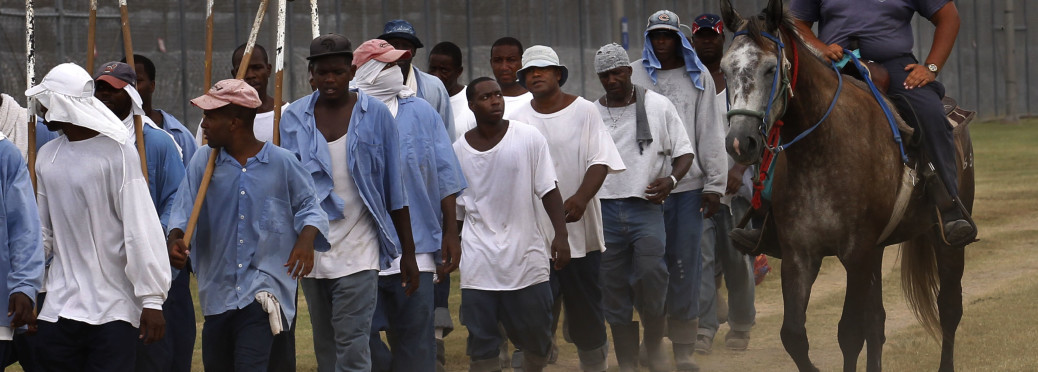The Farm: Angola, U.S.A. (1998) is a chilling examination of prison life in the Louisiana State Penitentiary. Although the documentary is set almost entirely within the penitentiary, the issues it addresses emanate from outside the prison’s gates. The directors present the unjust captivity and unfair treatment of Angola’s inmates as a microcosm of the pervasive, systemic oppression of African-Americans in the United States.
Before it was acquired by the state government in 1901, Angola was a plantation that relied on slave labor imported from Africa. The directors draw parallels between antebellum Angola and present-day Angola by devoting screen time to images of African American inmates sowing seeds on the prison’s farm for only a few cents an hour. These visuals combined with a narrator’s description of 19th-century slavery argue that Angola is the face of neo-slavery; no governmental proclamation, act, or institution has effectively uprooted the South’s supremacist paradigm.
One might attempt to invalidate the directors’ argument by pointing out that the film’s subjects are murderers—not commodified abductees—but The Farm: Angola, U.S.A. rebuts with the story of Vincent Simmons. 30 years after a jury determined he was guilty of rape, Vincent Simmons maintains his innocence and actively pursues an evidentiary hearing. In the film, he references legal documents that quote his accuser admitting she could not pick Simmons out in a crowd because “all blacks look alike”. The judge responds that “someone must be arrested.” The filmmakers bolster Simmons’s story with archival photographs that reveal unethical and racially discriminatory legal action against Simmons. The plaintiff’s and judge’s demand for a scapegoat edited against the archival photographs portray Simmons as a man of color who was torn from his home and denied autonomy in order to gratify a white community; in this light, Simmons is a slave. This syllogism is a potent rhetorical strategy; those who argue that the subjects are perpetrators and should not be cast as victims are forced to admit the legal system, which is central to their argument, is fallible.
Academic circles discuss the ways documentaries “give a voice to the voiceless,” and after watching The Farm: Angola, U.S.A. that aim becomes much clearer. Once a casualty of systemic racial prejudice lands in Angola, they are silenced and forgotten. The Farm: Angola U.S.A. links these inmates to those who are at liberty to fight for equality.
by Helen Butcher



